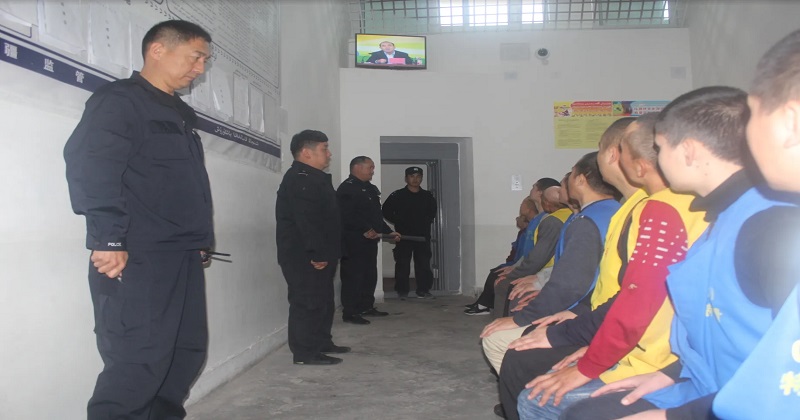
Thousands of images from the core of China’s highly secretive mass detention system in Xinjiang, as well as a shoot-to-kill policy for anyone attempting to flee, are among a massive trove of material stolen from regional police computer systems. The BBC received the Xinjiang Police Files earlier this year.
After months of investigation and validation, they may be proven to provide substantial new insights into the imprisonment of the region’s Uyghurs and other Turkic minorities. Their release coincides with the arrival in China of UN Human Rights Commissioner Michelle Bachelet for a contentious visit to Xinjiang, with opponents fearful that her schedule would be tightly controlled by the authorities.
According to the BBC, the cache demonstrates China’s use of ‘re-education’ camps and official prisons as two independent but connected systems of mass confinement for Uyghurs in unprecedented detail and gravely puts into doubt the country’s well-honed public narrative regarding both. Foreign Minister Wang Yi met Michelle Bachelet in the southern city of Guangzhou on Monday, as she began her first visit to China as the United Nations High Commissioner for Human Rights since 2005.
Her six-day fact-finding mission is focused on charges of atrocities against the Muslim minorities in the northwestern province of Xinjiang, but rights organizations are concerned that her presence may assist whitewash the assaults. China has imprisoned a million or more Uyghur, Kazakh, and other Muslim minorities in what opponents call an effort to erase their different cultural identities. China claims it has nothing to conceal and invites everyone with no political agenda to visit Xinjiang to witness what it calls a successful drive to combat terrorism, restore order, and ethnic cohesiveness.
Researchers from the Australian Strategic Policy Institute documented over 380 re-education camps, detention facilities, and prisons in Xinjiang in 2020, using satellite photography and other information. Since World War II, this is the biggest mass detention of an ethnic-religious minority population. The concentration camps are the most dramatic manifestation of China’s brutal practices toward the Uighurs, but repressive policies affect the whole community. China has transformed Xinjiang into a high-tech police state through extensive monitoring.
Inside and outside the camps, Uighurs are exploited for cheap labour, and pushed to make garments and other items for domestic and international markets. The New York Times uncovered in July that certain Chinese-manufactured face masks sold in the United States and other nations were made in facilities that used Uighur labour. The Chinese government, on the other hand, says that the camps are only vocational and training institutes that teach individuals work skills. It has justified the tyranny in Xinjiang as a response to terrorism and extremism arising from the Uighur separatist movement.
There have been occurrences of violent unrest throughout the years, including a few deadly terrorist attacks, and at least one Uighur extremist organization in the region, the East Turkistan Islamic Movement, has links to al-Qaeda and the worldwide jihadist movement. However, most observers believe that Beijing’s repression and enslavement of millions of Uighurs are extremely disproportionate to the region’s fairly tiny terror danger.
China’s governing Communist Party tolerates no political opposition and tightly restricts free speech, assembly, and religious expression. China is also one of the five permanent members of the United Nations Security Council with veto power, and it has signed but not ratified the International Covenant on Civil and Political Rights, which is overseen by Bachelet’s office.

Post Your Comments